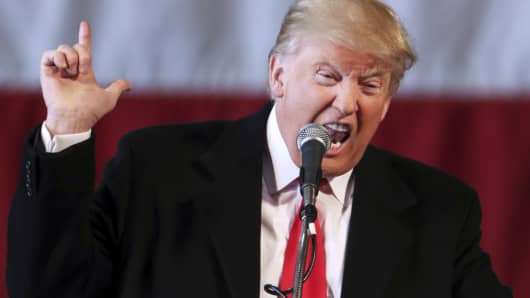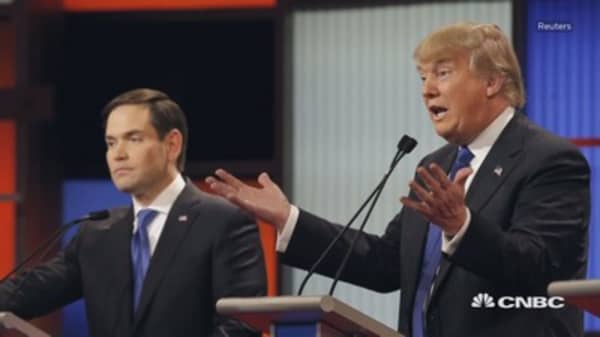Maybe I've been working in politics too long. Maybe it's because I originally hail from New York (well, mostly New Jersey). I just don't think the recent Clinton and Sanders exchanges about qualifications, guns, or even "doing one's homework," count as "the gloves are off" or "going on the attack," as many media and campaign-watchers have described them. Remember, the Republican candidates have been going New York on each other for almost a year, calling each other con men, liars, little, and small-handed.
And while the Democratic debate over delegates and process is also striking some as heated, it too, can't hold a candle to the division on the Republican side. Sanders supporters claim neither candidate will have a majority of delegates headed into the convention. Clinton supporters say her lead is nearly insurmountable. They're both right. Clinton will likely reach a majority of both voter-driven pledged delegates and unbound superdelegates, but she'll need both in order to reach a majority of total delegates. This is true even though Sanders has won eight of the last nine contests, and it'll probably still be true even if he wins New York next week.








